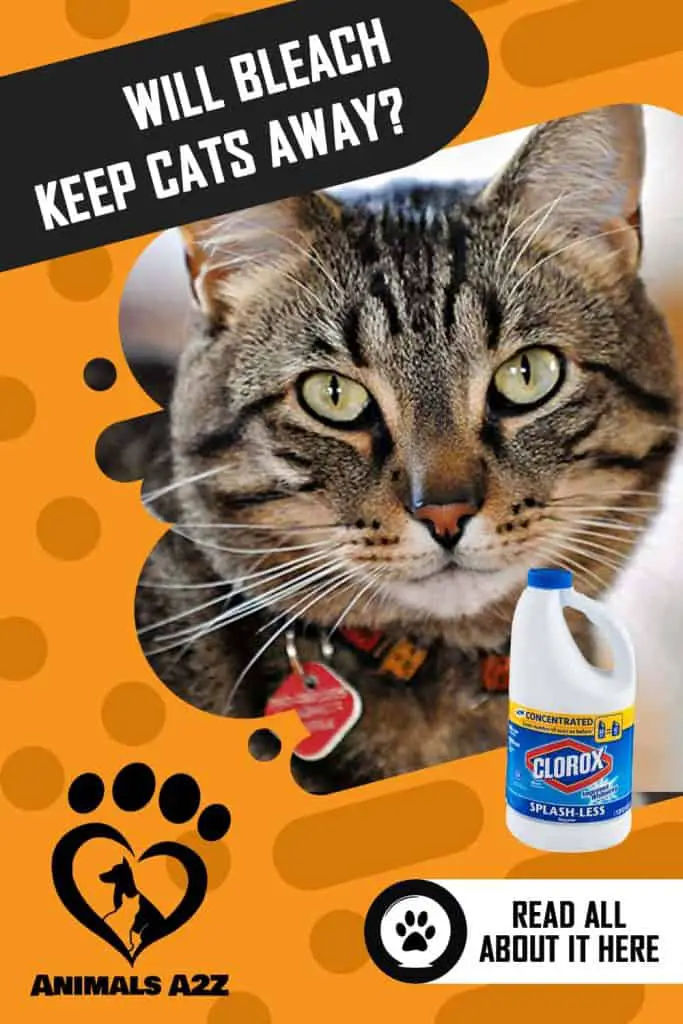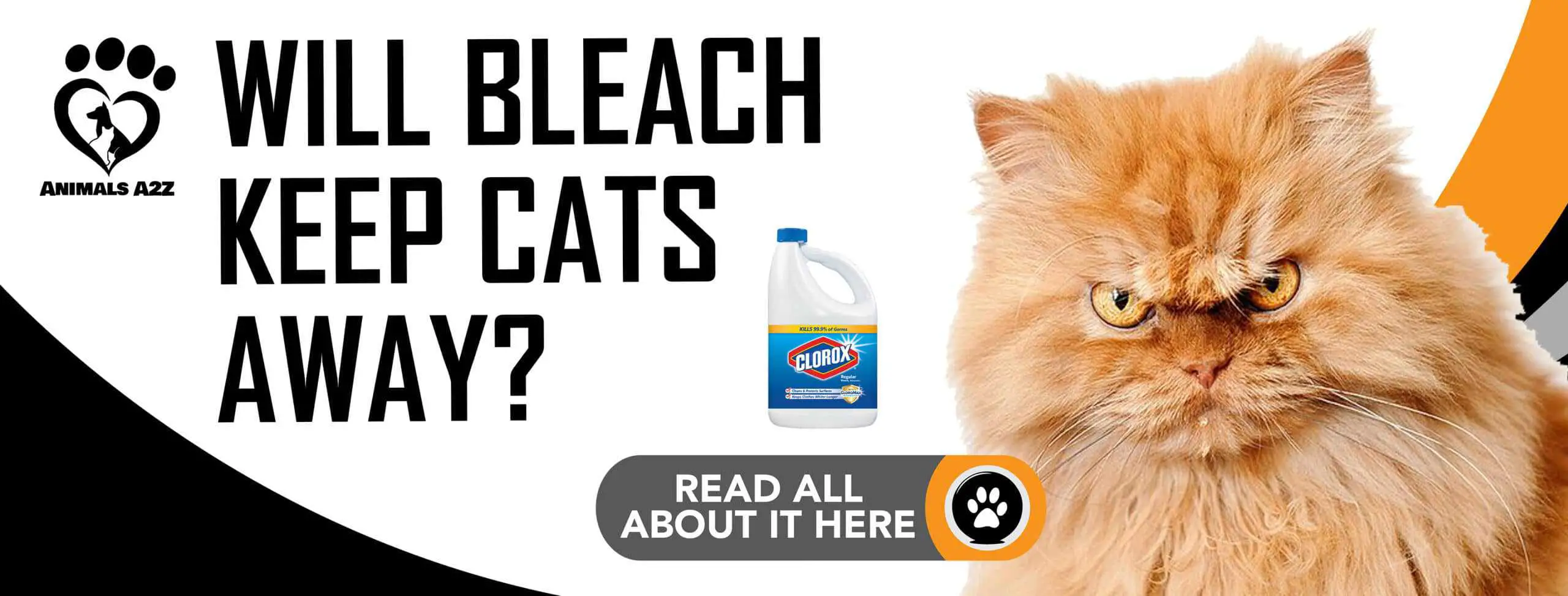Do you have a nice garden that you want to keep cat poop free? It is completely understandable how horribly annoying it must be to tend a garden, making it nice and pretty only for it to be filled with cat poop. You might feel a little on edge and ready to take drastic measures like using bleach – please DON’T.
Table of Contents
Is it a good idea to use bleach as a cat repellent?
Bleach is not a good way to keep cats away and it is inhumane. There is many other much better ways to keep cats away. We recommend that you don’t spray bleach places where animals eat, drink, scratch or sleep. Bleach might hurt the cats and other animals.
Keep reading to find out why, and what you can do instead.
You can also read these articles:
Why you shouldn’t use bleach
Bleach is poisonous to both cats and dogs. The one you have at home may not be the corrosive kind, still, cats and dogs are at risk for irritation if they are exposed to it. Concentrated bleach used by professional cleaners can cause severe lesions on your pet’s skin and even down to their throats and stomachs. Non-Chlorine bleach is also dangerous to these animals and will cause vomiting and tissue irritation.
If your pet happens to have had contact with bleach – especially concentrated bleach, please take them for emergency care post haste. Please keep bleach as far away from animals as possible.
If your purpose for bleach is to keep cats away – for some cats it won’t doesn’t even work. There has been evidence showing that cats are attracted to the chlorine found in most bleaches. They’ll rub themselves and drool all over it, which is the total opposite of what you want them to do.
Other than bleach, another cat repellant you should NEVER use is cayenne pepper flakes as this can sting and hurt animals.
There are other, less dangerous ways to deter your cat from going into places they shouldn’t be. Let’s explore those options for both indoor and outdoor cat repellants now.
Indoor Cat Repellants that works better than bleach
You may mix equal parts of apple cider vinegar and water and use this solution as a cat deterrent spray. Spray this on areas that are cat restricted. If you are not too keen on smelling like vinegar, you may use citronella, lavender, peppermint or lemongrass essential oils. For the alternate solution, it should be 1 part oil to 3 parts water. Cats have very sensitive noses and most of them simply dislike the smell of these.
If the area you don’t want your cat to be is your kitchen counter, you may cover them with aluminum foil. The texture of the foil is unpleasant to cats. On top of that, when they jump on the counter, they’ll be surprised by the loud noise the aluminum foil makes and will swiftly take off.
Outdoor Cat Repellants that works better than bleach
You may still use the liquid mixture discussed in the previous section for outdoors, but if it’s for your garden, it’s probably best to just plant some lavender, peppermint and/or citronella plants around the perimeter.
An option that you can readily buy are odor barrier powders. These powders are made to smell like your cat’s natural predators: coyote, fox and bobcats. Don’t worry about using these in your garden as they are organic and will not harm your plants.
If these things don’t work for you, think about installing motion activated sprinklers in your garden.
Common questions about household hazards for cats
How can I tell if my cat has been poisoned?
As we all know, cats are very curious creatures and sometimes it can get them into trouble. Many everyday household items found in our homes can be dangerous for our cats. Both of these things contribute as to why among all kinds of pets, cats get poisoned the most.
Here are the symptoms to look out for:
- Excessive salivation
- Vomiting and diarrhea
- Twitching or seizures
- Breathing difficulties
- Shock
- Inflammation
- Depression
- Coma
- Weakness and disorientation
- Paleness in their gums
- Changes in their appetite, drinking habits and urination frequency.
Why must I rush if my cat is poisoned?
Because cats are so small, even the tiniest doses of poison can be fatal for our little fur babies. This fact makes it so important as cat guardians to be able to spot the signs if your cat has been poisoned.
What should I do if my cat is poisoned?
As soon as you suspect that there is something wrong with your cat, please take your cat to the nearest veterinary clinic. You don’t have to wait until your cat is showing signs of poisoning as waiting too long may lead to your cat being too sick to survive. As soon as you are able, call the poison control hotline and your vet’s office.
If you are able, please take a sample of the poison with you when you go to your vet. It would also be very helpful to your vet to know how much of the poison has your cat ingested.
You may be asked by the professionals to do a bit of first aid for your cat. Unless you are instructed to do so, DO NOT induce vomiting in your cat. In some cases, vomiting may worsen your cat’s situation.
Conclusion
Bleach is extremely dangerous to cats. Please keep it as far away from them as possible. If your purpose for using bleach is as cat repellant, it can be counterproductive as some cats are actually attracted to it.



